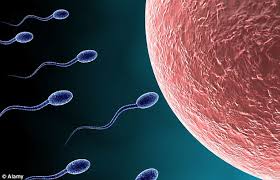Donor conception is a new way of conceiving a child. Parents who in the past would have had to adopt or accept not to have children, can now hope to have a baby despite their bodily limitations (age, sex, infertility due to some physical condition, etc).
Technology can alleviate the pain of remaining childless. As an analyst who works with children and adults, I know from experience that donor conception is not only a “matter of fact” activity.
Consciously or unconsciously, it will affect the parents who resort to it, and the children who have to construct their identity around it. Conscious or unconscious fantasies about their origins, unresolved questions of the parents around their motivations for resorting to donor conception or other means to have a child might complicate the children’s capacity to come to terms with their birth and affect their capacity to construct their identity. More people are now coming to seek help around these questions, children who have been conceived through donor conception, and adults who are thinking of recurring to a donor.
As analysts and psychotherapists we need to be prepared to think with our patients about these matters. It is our responsibility to be able to assist these people in their quest. This is why we are organising a day conference scheduled for 23 April 2016 at the Wellcome Collection

Child and Adult trained analyst
ACP, SAP, BPC reg.
